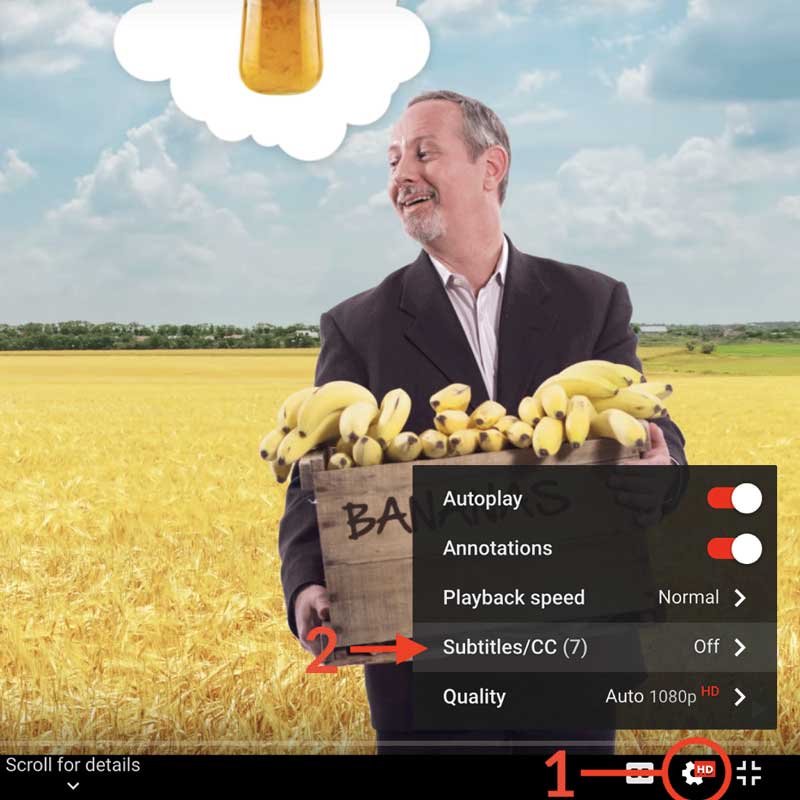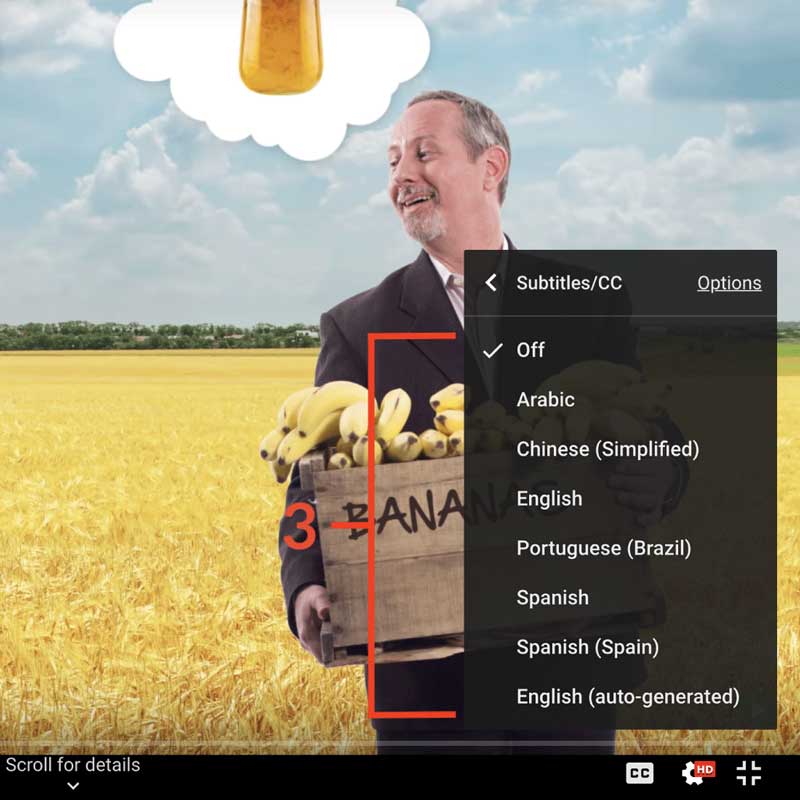Prediction Markets
Course Outline
Prediction Markets
This is "Prediction Markets" from our Principles of Economics: Microeconomics course.
Can prices convey information about events and even predict the future? For instance, can we predict Middle East politics based on the price of oil futures? Or predict the consequences of climate change based on the price of flood insurance in coastal cities? Of course, prices in these examples are imperfect predictors as there are many factors that influence the price.
We also take a look at some markets that have been designed to make predictions, like the Iowa Electronic Markets, and a specific example of how it was used to predict the outcome of the 2008 presidential election between John McCain and Barack Obama. What about the Hollywood Stock Exchange, where traders buy and sell shares and options in movies and music? What did the studio learn about its casting choices for the film, “50 Shades of Grey”? We discuss these examples and more in this video.
Teacher Resources
Transcript
Today, we look at a new type of market. A market which has been designed to make predictions.
In previous talks we discussed how prices are signals that convey information. Information about where goods have high value and where they have low value, which goods have high value and which have low value and so forth. Prices also can convey information about world events, even predictions of the future.
So, the orange juice futures price for instance, implicitly contains a prediction about the weather in Florida. It's not that these markets were designed for this purpose, rather it's that speculators, if they are to profit from movements in the price of orange juice futures, have to make some predictions about the weather in Florida. They have to know something about the weather in Florida. So the price of the orange juice futures, comes in part to reflect the information that speculators hold about future weather patterns in Florida. Indeed, economists and others often have looked informally to market prices to help make predictions. To help predict Florida weather, they look to the price of orange juice in the futures market. To help predict Middle Eastern politics, they look to the price of oil and oil futures. To help predict the consequences of global climate change, they look to the price of flood insurance in coastal regions.
Now, in each of these cases, the implicit prediction is just a by-product of the market and indeed many other things are going on in these markets which also influence the prices. The prices in these markets are noisy predictors. They're rather imperfect predictors because they weren't designed to only predict. What would happen if we design the market explicitly to make predictions? Then the predictions we got out of the market might be even more robust and even more accurate. Let's take a look at some markets which have been designed to make predictions.
Prediction markets are speculative markets which have been designed so that the prices can be interpreted as probabilities and used to make predictions. One of the most famous of these is the Iowa Electronic Markets. I encourage you to go to the web and check them out. Traders on the Iowa Electronic Markets buy and sell shares of political candidates, and the prices of the shares can be used to predict the outcomes of elections. Let me give you an example.
Here's the case of the Iowa Electronic Markets from the 2008 election between Barack Obama and John McCain. In these markets, one Obama share pays you a dollar if Obama wins and pays you nothing otherwise. One McCain share pays you a dollar if you hold the share and McCain wins, and pays zero if he loses. Now, suppose you think Obama has an 80% chance of winning that election, how much would you be willing to pay for an Obama share? Well, if an Obama share pays a dollar if Obama wins and he has an 80% chance of winning, then that share is worth 80 cents. You would be willing to pay up to 80 cents for such an Obama share. Suppose you enter this market and you find that these Obama shares are selling for 65 cents, well, that's a buying opportunity. Something which you think is worth 80 cents is selling for 65, so then, you should buy Obama shares. In buying the shares, you would be pushing up their price. In this way, your predictions, your information, your opinions about which candidate is likely to win become incorporated into the price of an Obama share.
By the way, suppose you thought Obama had an 80% chance of winning but his shares were selling for 90 cents, well then, you would want to sell Obama shares. Even if you're an Obama supporter, to make more money you would sell the Obama shares and buy the McCain shares. Again, in this way, prices come to reflect the information.
There are lots of traders in these markets. People who are very politically astute, who understand the electoral college and who understand how elections work and how well or how badly a campaign is going. When these individuals buy and sell shares, their information comes to be reflected in the market prices. Here are the actual prices on August 8th, 2008. Obama shares were selling for 63 cents per share and McCain shares were selling for 37 cents. The market was predicting a high likelihood of an Obama win and in fact, that did, of course, turn out to be the case.
In over 20 years of testing these markets, in presidential elections, congressional elections, and state elections, these market prices from the Iowa Electronic Markets have turned out to be better predictors of the outcomes than have political polls. That makes a lot of sense. Think about it. With real money on the line, people have an incentive to think carefully when they're investing and they have an incentive to collect and process and interpret all of the information from available all over the world. The resulting market prices reflect a lot of deep-seated information and indeed interpretation in a way which political polls simply cannot.
Similar prediction markets have been creating all kinds of things. Some are pretty trivial things, such as which actor or actress is going to win the next Oscar, but also, firms have begun experimenting with prediction markets to help from forecast variables, like their future sales or which is the better decision, or what will happen in some particular market or some particular economy. Firms have been using prediction markets to try to help themselves make better decisions.
Let's give an example. At the Hollywood Stock Exchange, traders buy and sell shares and options in movies, music, and Oscar contenders. Some 800,000 traders do this for fun. They're using make-believe "Hollywood dollars" but they still care enough about the outcome to make the prices in these markets pretty reliable predictors of future film profits. Now, although the traders are doing this for fun, the website is owned and run for profit. The information, the implicit predictions in these prices, that's valuable to studios who want to try and understand what's going to work in their next film and what's not going to work.
Here is an example. Some of us may believe that sex sells, but is that actually the case? Well, on the Hollywood Stock Exchange, we can be much more precise using market prices. Here is some of the trading for the movie "Fifty Shades Of Grey" and you can see the price made a whole bunch of leaps up and then leaps downward. That's reflecting changing revenue estimates for the movie. A leap up came when Charlie Hunnam was cast to play the title role in the movie and then the price did go up. Later on, Charlie dropped out and the price dropped right back down again. The prices in these markets are important information for the studios. They tell the studios how much are these actors really worth. If we hire this actor, how much will revenue for the movie go up? Are people excited about a particular actress in a particular role, what about the director? By using the information and the prices from the Hollywood Stock Exchange, studios are able to better cast their movies and they can make better decisions.
No prediction process has perfect accuracy, but the prices from the Hollywood Stock Exchange turn out to be pretty useful, especially when compared to other methods. Along here, we have predicted opening revenues as shown by the prices on the Hollywood Stock Exchange, and then here we have actual revenues. If the predicted revenues always equal the actual, well then, everything would be along the red line. When the actual revenues turn out to be more than predicted, we're above the red line. So the original movie, "Kings Of Comedy", was a smash hit because it did much better than predicted. The movie, "The Adventures of Pluto Nash" with Eddie Murphy, well that was a disaster. It did much worse than predicted. On average however, the predicted revenues are pretty good indications of what the actual revenues would be. And again, that's why the studios look at these market prices because they are relatively accurate predictions, more accurate than other available measures.
Alright, let's conclude. Market prices reflect information and they convey information. Prices in futures markets, can signal all kinds of things such as war in the Middle East, cold weather in Florida, or who will win the next election. Prediction markets are new types of markets which have been created to help businesses, governments, and scientists predict future events. Market prices are good ways of aggregating dispersed information and summarizing that information in a single key figure, the price. Thanks.
Subtitles
Thanks to our awesome community of subtitle contributors, individual videos in this course might have additional languages. More info below on how to see which languages are available (and how to contribute more!).
How to turn on captions and select a language:
- Click the settings icon (⚙) at the bottom of the video screen.
- Click Subtitles/CC.
- Select a language.


Contribute Translations!
Join the team and help us provide world-class economics education to everyone, everywhere for free! You can also reach out to us at [email protected] for more info.
Submit subtitles
Accessibility
We aim to make our content accessible to users around the world with varying needs and circumstances.
Currently we provide:
- A website built to the W3C Web Accessibility standards
- Subtitles and transcripts for our most popular content
- Video files for download
Are we missing something? Please let us know at [email protected]
Creative Commons

This work is licensed under a Creative Commons Attribution-NoDerivatives 4.0 International License.
The third party material as seen in this video is subject to third party copyright and is used here pursuant
to the fair use doctrine as stipulated in Section 107 of the Copyright Act. We grant no rights and make no
warranties with regard to the third party material depicted in the video and your use of this video may
require additional clearances and licenses. We advise consulting with clearance counsel before relying
on the fair use doctrine.
